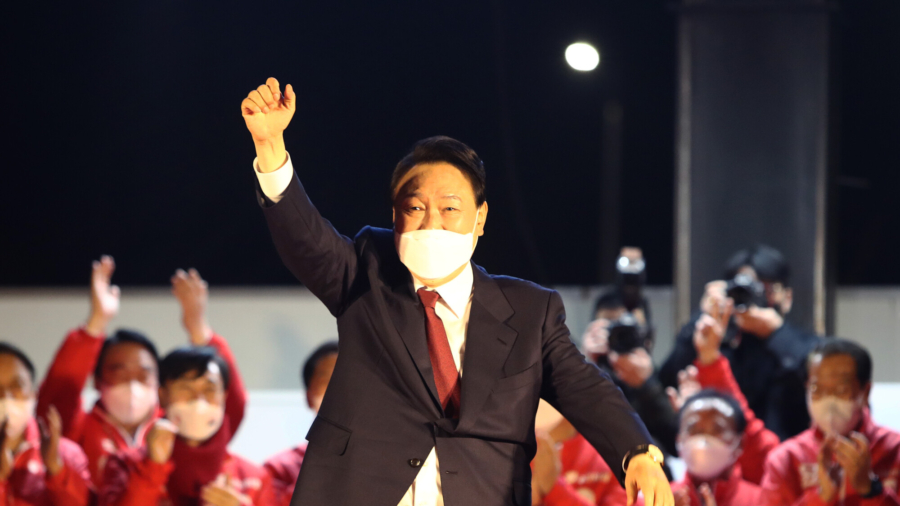SEOUL—A conservative former top prosecutor was elected South Korea’s new president in one of the closest fought races in recent history, which will shape Asia’s fourth-largest economy for the next five years.
Yoon Suk-yeol, 60, from the main opposition People Power Party, edged out the ruling Democratic Party’s Lee Jae-myung with 48.6 percent of the vote to 47.8 percent, with around 99.3 percent of the ballots counted as of 5 a.m. on Thursday.
Yoon said he would honor the constitution and parliament and work with opposition parties to heal polarized politics and foster unity, calling the election a “victory of the great people.”
“Our competition is over for now,” he told a news conference, thanking and consoling Lee and other rivals. “We have to join hands and unite into one for the people and the country.”
Lee had conceded defeat and congratulated his opponent.
“I did my best, but failed to live up to your expectations,” he told a news conference, blaming his “shortcomings.”
“The president-elect, I desperately ask you to overcome divisions and conflicts and open an era of integration and unity.”
Yoon shot to fame after spearheading high-profile investigations into corruption scandals engulfing incumbent President Moon Jae-in’s aides.
Yoon has pledged to stamp out graft, foster justice, and create a more level playing field, while seeking a “reset” with China and a tougher stance toward reclusive North Korea.
The unusually bitter election campaign was marred by scandals and smears, but more than 77 percent of South Korea’s 44 million eligible voters cast ballots to pick their next leader.
Yoon has to tackle challenges including South Korea’s COVID-19 infections and North Korea’s evolving nuclear and missile threats, while navigating an increasingly tense rivalry between China and the United States.
Yoon says he would sternly deal with North Korean provocations and seek to boost trilateral security cooperation with Washington and Tokyo. Yoon has said he would make an enhanced alliance with the United States the center of his foreign policy while taking a more assertive stance on China.
The Associated Press contributed to this report.

